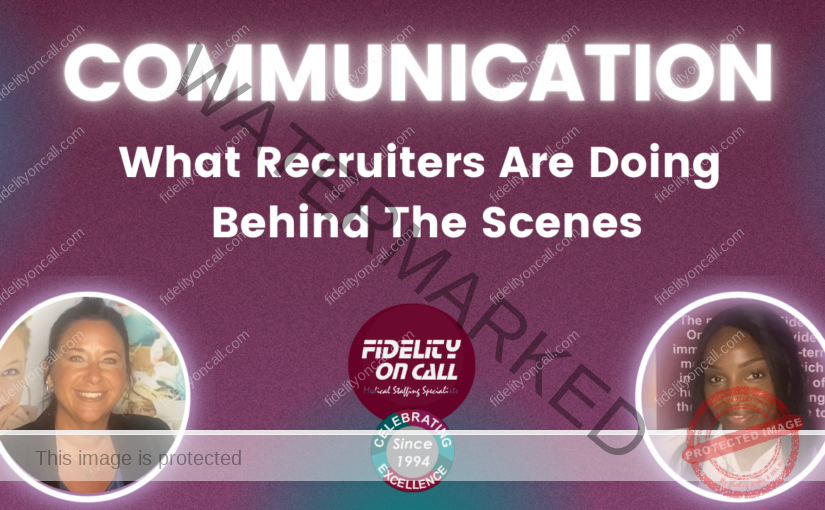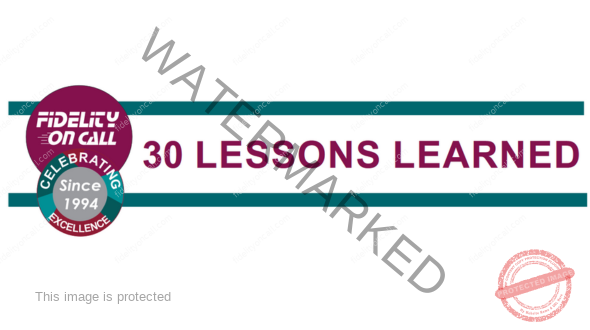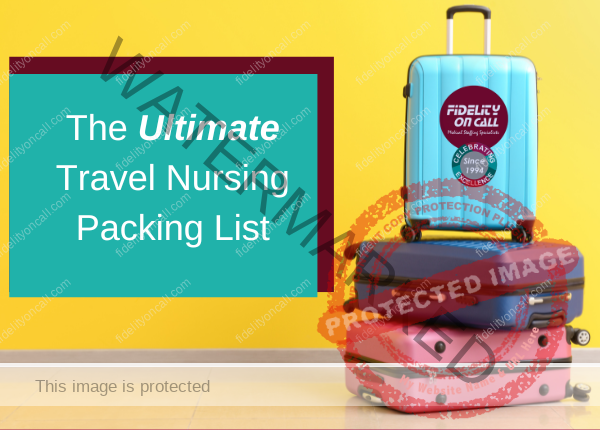Fidelity On Call has been providing the highest quality patient care for 30 years as a travel nursing company! After that many years in business, we’ve learned a lot, which is why we continue to thrive! Here is a collection of some of the best lessons learned about travel nursing that have stood the test of time.
_________
1 Not every great nurse makes a great traveler.
_________
2 Not all travel nurses make great FOC travel nurses.
_________
3 Trust only those who have proven to be trustworthy.
_________
4 Never hire someone whose first concern is the amount of money they will make.
_________
5 Always do the right thing. . . it will reap rewards.
_________
6 It is our job to knock on doors – we cannot MAKE them open.
_________
7 Don’t work with customers who won’t pay their bills without being hounded. It wears you out and they are using you.
_________
8 You cannot be all things to all people. Be targeted . . . stay on your mission.
_________
9 Don’t staff at facilities that don’t share your mission. When we care and they don’t, it just burns our employees out.
_________
10 There are external factors that affect your business. Just keep targeted, continually research, change what needs changing, grow, and update.
_________
11 If you hire a staff member that is never happy, it is not worth the energy it takes.
_________
12 Don’t take things too personally. Potential customers and nurses say no, they leave, they don’t always behave as we would like. We are only responsible for our reaction to it.
_________
13 Lies will always be found out. It is better to tell the and deal with the facts.
_________
14 Sometimes you have to wait a long time to see your efforts pay off. Be patient. Don’t lose hope.
_________
15 Treat your employees fairly. Never break a promise.
_________
16 If someone is motivated by greed, they are not the right person for the job.
_________
17 When an employee thinks the grass is greener on the other side, let them go and find out.
_________
18 Communication is the essence of every good business.
_________
19 Continually invest in your business.
_________
20 Not all business is good business. It is okay to walk away from a customer.
_________
21 Agencies that are not reliable or honest don’t last. Eventually the word gets out.
_________
22 When in doubt – check it out (compliance issues). Documentation can be forged!
_________
23 Life is easier when you hire good people.
_________
24 You might not be the biggest company, but you can stand apart from others with your quality and integrity.
_________
25 The government will continue to make more rules and regulations. It can be very frustrating . . . but sometimes, they work in your favor.
_________
26 Mergers and acquisitions happen everyday. But there is always a need for travel nursing.
_________
27 A reputation built on integrity, honesty and reliability stands the test of time.
_________
28 Stress and stressful times happen. How we get through those times are the test of our character and determination.
_________
29 “The more things change the more they stay the same.” Keep hold of the good things!
_________
30 As Winston Churchill said: Never, never, never give up!






